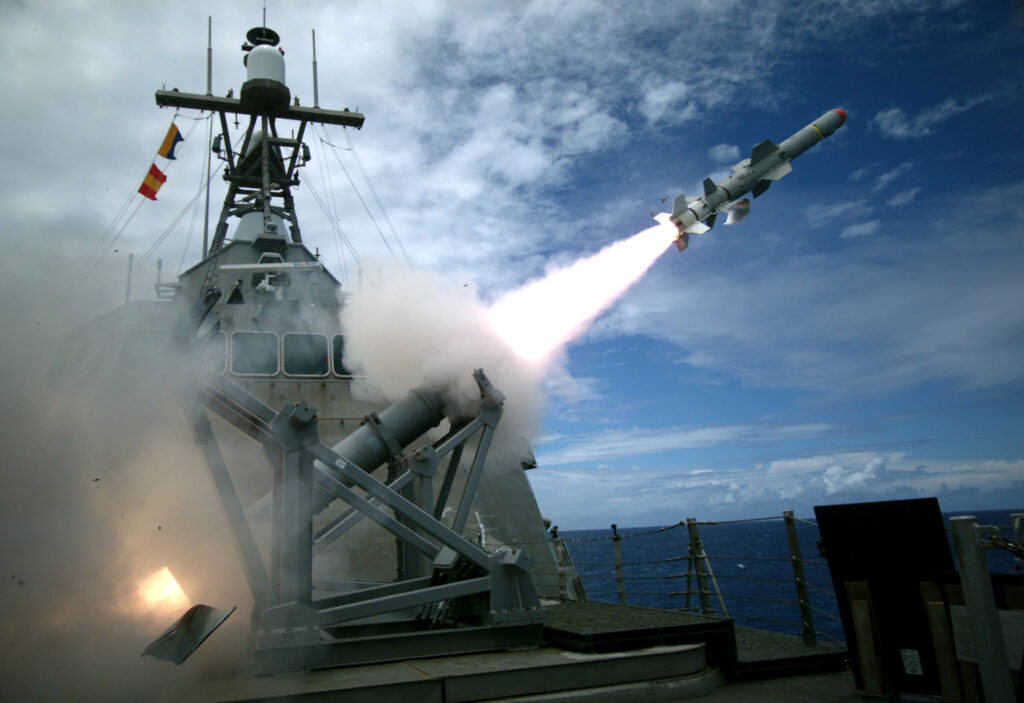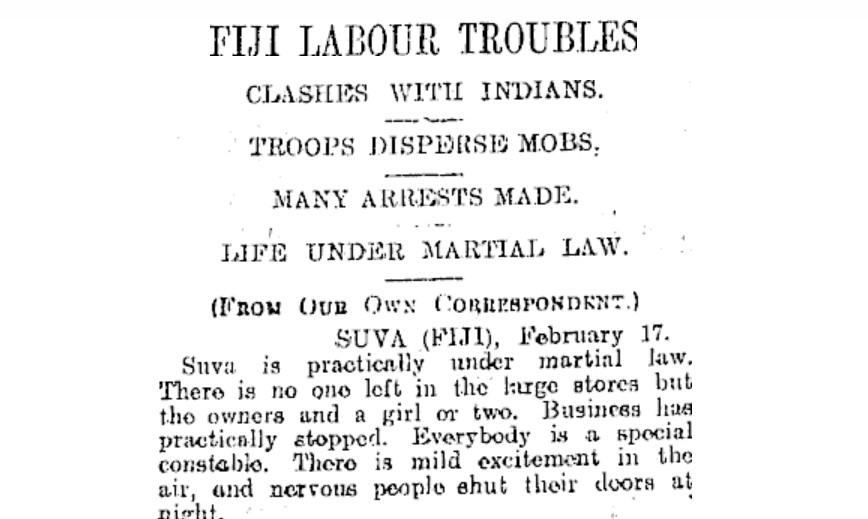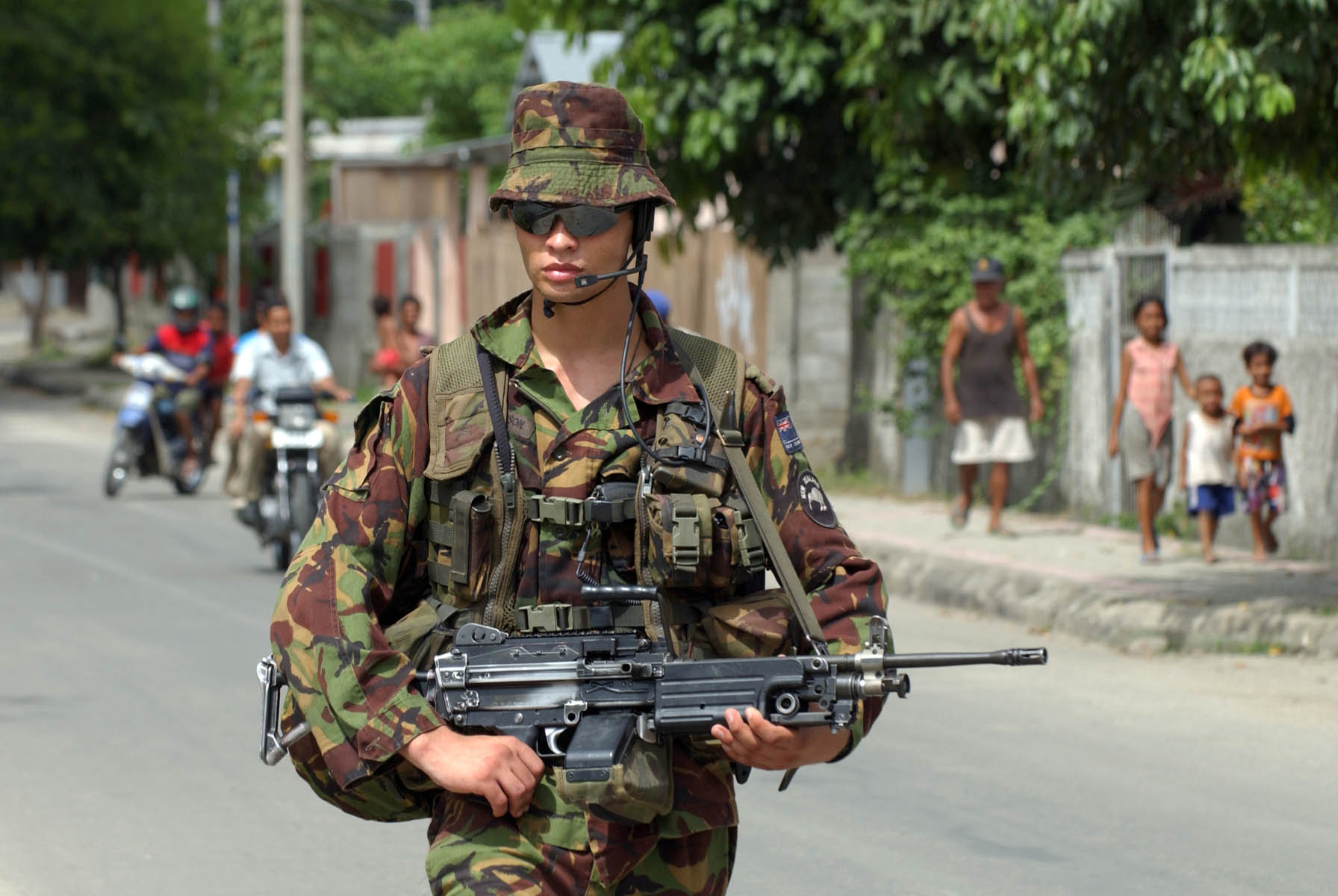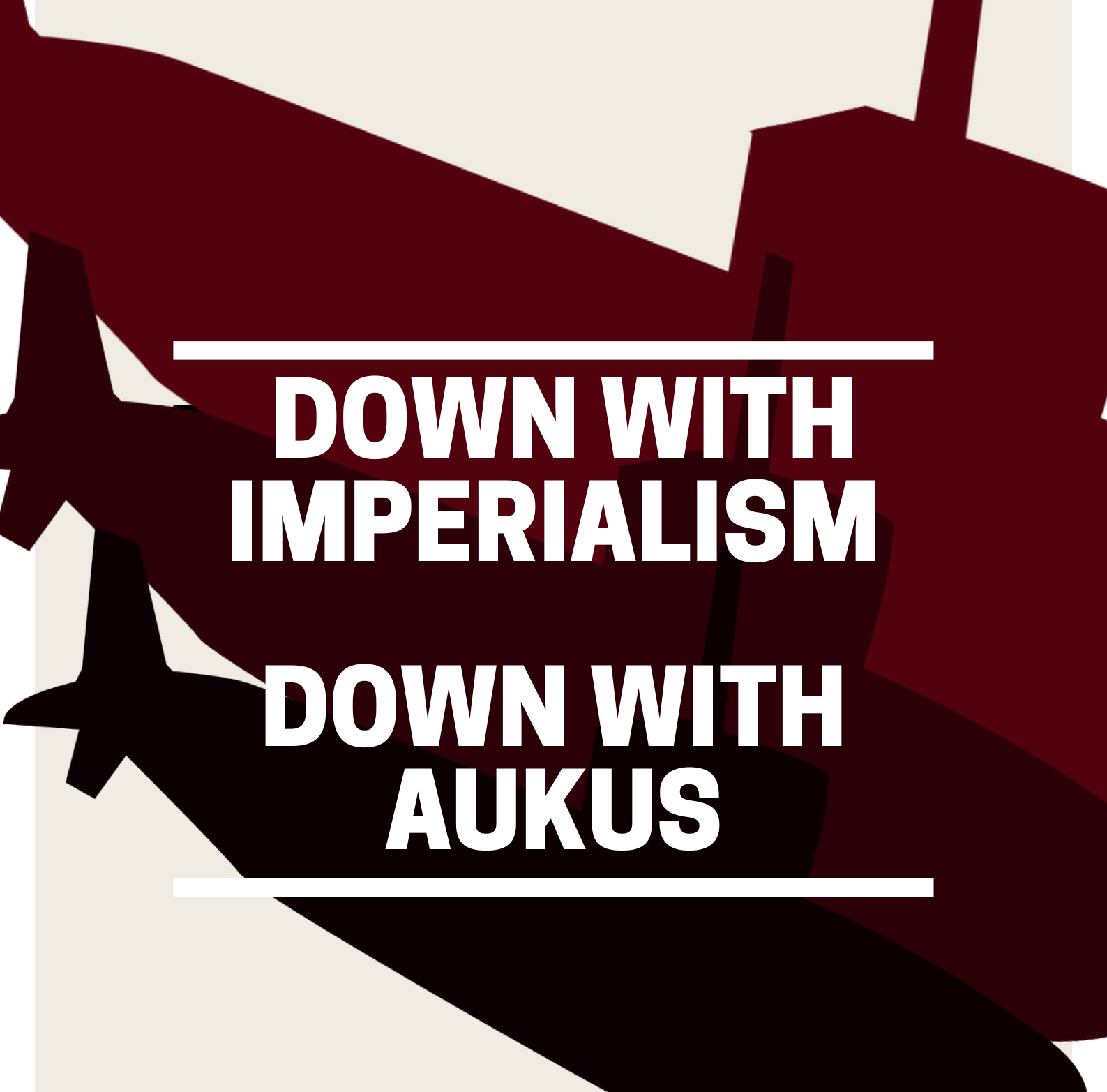In early July the New Zealand Defence Force (NZDF) announced the presence of HMNZS Aotearoa in Pearl Harbor as part of the Rim of the Pacific (RIMPAC) war practice. Commanding Officer, Rob Welford explained: “we stand strong, we stand staunch, we stand together as sailors […] partners integrated and prepared.” What, we might ask, is the navy standing strong and preparing for? Not just the navy, in fact, but a wide range of military units. NZDF proudly stated that they were: “contributing around 250 personnel to the exercise including the ship’s crew, operational divers from HMNZS Matataua, a Royal New Zealand Air Force P-8A Poseidon aircraft and air detachment, medical personnel, a dental team and other New Zealand Defence Force personnel operating in various headquarters and supporting units.” Those 250 personnel represent a mobilisation of almost 3% of regular forces – a significant commitment.
The RIMPAC practice is a regular multi-nation exercise led by the United States. The 2024 event brings together the military forces of 29 nations including the USA, the United Kingdom, France, Australia, New Zealand, and Israel. Although China participated in RIMPAC exercises in 2014 and 2016, US government publication Voice of America makes clear the present stance: “World’s largest naval exercise sends message to China”. A paragraph which echoes that headline continues: “RIMPAC nations this year will practice targeting the decommissioned assault ship USS Tarawa, in a rare chance to learn how effective their weapons are at sinking a large and protected adversary in open waters.” This sabre-rattling makes John Pilger’s 2016 cautionary documentary The Coming War On China seem all the more prophetic.
Resistance to RIMPAC
RIMPAC hasn’t progressed unopposed, however. In Te Whanganui-a-Tara, peace activists staged a graphic die-in at the military headquarters building ‘Defence House’, highlighting that the NZDF force is training alongside the forces of genocidal Israel. In the USA, groups including Cancel RIMPAC, Resist NATO, and Jewish Voices for Peace Hawaii have protested the numerous impacts of these massive military concentrations which include: developing NATO’s capability to wage brutal wars and undertake military occupations; sex trafficking during RIMPAC disproportionately affecting Native Hawaiian women and girls; and navy sonar harming whales leading to mass die offs and beachings. Protests are widespread, but the roots of imperialism run deep.
Australia, the UK, and the USA announced a deal in 2021, termed AUKUS, which includes commitment to construction of eye-wateringly expensive nuclear submarines. New Zealand looks likely to become a partner in a “Pillar 2” part of a wider AUKUS agreement for spy- and technology-sharing, developing from its existing role in the Five Eyes spy network. While the imperialist “Western” powers plan further infrastructure of oppression, weekly anti-RIMPAC protests outside Defence House have been called by the Stop-AUKUS group, veterans of anti-nuclear activism of past decades. The Pacific has been subject to the aspirations and whims of would-be Western emperors for a long time.
Logic of Imperialism
Imperialism, the mind-set of establishing political dominance over other nations and thus establishing an empire, is nothing new. Such intent and action has been a regrettable feature of much of human history, pre-dating capitalism by a large margin. In our present era, though, capitalism is the global system ordering the world. The motivation for imperialism nowadays is therefore shaped by capitalism, giving it a particular purpose and character. Capitalism on a small scale appears as small companies in competition with one another within a limited domain, but this system requires capitalists to never-endingly grow their wealth or be consumed. As winners emerge from capitalist competition, and those winners use the spoils of market victory to grow in size and influence, capitalists will increasingly need to overcome geographic and national limitations.
The biggest and most influential capitalists enlist state support to grow beyond national borders to enable both resource extraction and commodity sales on a global scale. The most influential of capitalists drive their representative states into international conflicts – conflicts ultimately fuelled through mass sacrifice of working class lives. Nationalism is a particularly useful tool for capitalists to achieve this goal. The stoking of an arbitrary border-limited “national pride” creates a sense of cross-class solidarity, encourages the working class to activity against their own class interests, provides a distraction from considering local exploitation, and undermines solidarity against exploitation outside of the national borders.
Kanaky in the French Vise
This is the lens through which we can understand the current Pacific imperial conflicts: the need for capitalists to extract more and more resources, to tap into more exploitable labour pools, and to force their way into new markets to sell their commodities. Capitalism is the driver of a plethora of ongoing imperialist, colonial, racist, exploitative, and environmentally destructive acts. Consider, for example, Kanaky New Caledonia – a French colony which has for decades had a carrot of independence dangled just out of reach and whose indigenous population has recently been subjected to brutal police and white settler violence.
Kanaky has long suffered economic, social, and environmental exploitation: first harvesting of sandalwood, then use of slaves and coerced labour, and nickel mining. Nowadays, exports from New Caledonia of mined metal and mineral products – primarily nickel – total USD$2.82B per year, making up 97.7% of all Kanaky’s exports and 29% of GDP. This makes Kanaky the world’s third largest nickel producer, after Indonesia and the Philippines. Nickel is a component of steel and of batteries, and is therefore a vital resource for maintaining hegemony of the “developed” world through infrastructure, weapons, and the financial transactions of the “green economy”. Thus, Kanaky represents a useful resource for France to exploit.
However, Indonesia has recently been massively expanding its already substantial nickel extraction operations, which has simultaneously decreased Kanaky’s global export share and led to a fall in the nickel price. Kanaky’s nickel industry now represents only about 6% of the global market, and the value of that market is dwarfed by the GDP of overlord France: Kanaky’s mining exports have a total dollar value only 0.09% of France’s GDP. Meanwhile, there is a not insignificant cost to maintaining colonial control through a combination of schemes such as France’s Investment Fund for the Social and Economic Development of Overseas Territories and the maintenance of police (gendarmes) and other military forces. So why has France been so determined to retain imperial control of Kanaky?
The answer lies in a combination of factors, all underpinned by capitalist motivations. Maintaining control of nickel production remains a motivation despite the immediate economic challenges. Maintaining control of a modest consumer market, a population of around 270,000, is another small boon. Control of Kanaky also establishes France’s claim to a 200 Nautical Mile Exclusive Economic Zone of Pacific ocean around land masses, offering potential future seabed resource extraction. And giving up a colony France has literally murdered people to retain would no doubt be perceived as a blow to French supremacy.
Similar examples abound all across the Pacific. France and the USA historically found the Pacific a useful testing-ground for nuclear weapons, and found indigenous people useful scientific subjects for monitoring the effects of exposure to nuclear radiation. Australia and New Zealand intervened in the Solomon Islands to ensure stability for continued gold mining. Nauru used to produce phosphate, but due to over-extraction has instead had to rely on payments from Australia for accommodating refugee prisons. All of the Pacific islands represent potential strategic staging-posts for the military activity of the larger players. China continues pressure towards control of Taiwan both for economic benefit and for access to the rest of the Pacific through local waters, and attempts to justify this under a nationalist banner. The USA continues to agitate against China under its own nationalist brand of ‘freedom’, obviously hypocrisy while USA itself retains imperial control of American Samoa, Guam, and the Northern Mariana Islands.
The capitalist views the world, including its people, as a collection of resources to be exploited. To the capitalist, resource accumulation is paramount. And capitalists have viewed the Pacific region as rife with opportunities for such accumulation. Importantly, though, many people are making the connections necessary to resist capitalism and its effects. When we help sufficiently strengthen these resistance movements we will be taking a significant step towards an anti-imperial, decolonised, just, and cooperative future.









